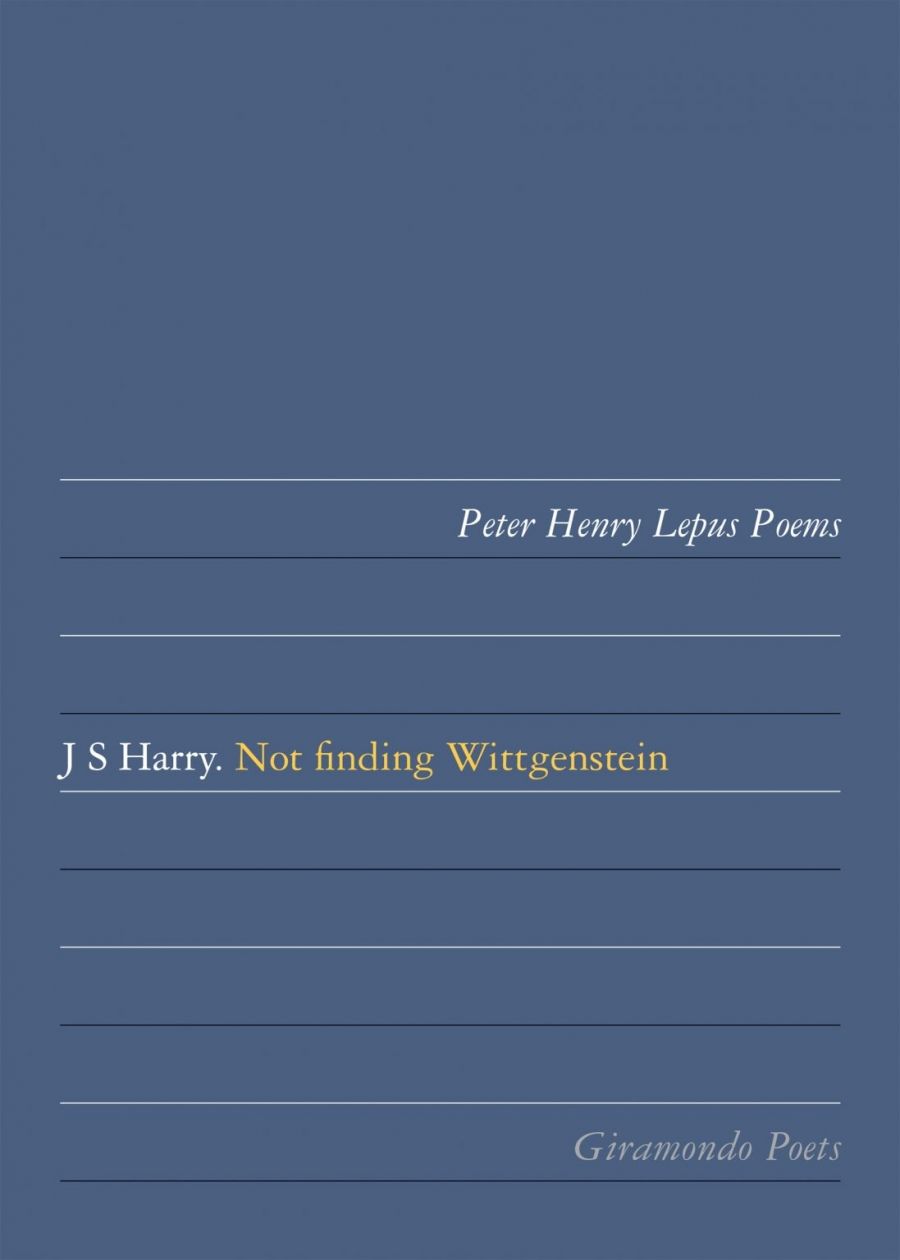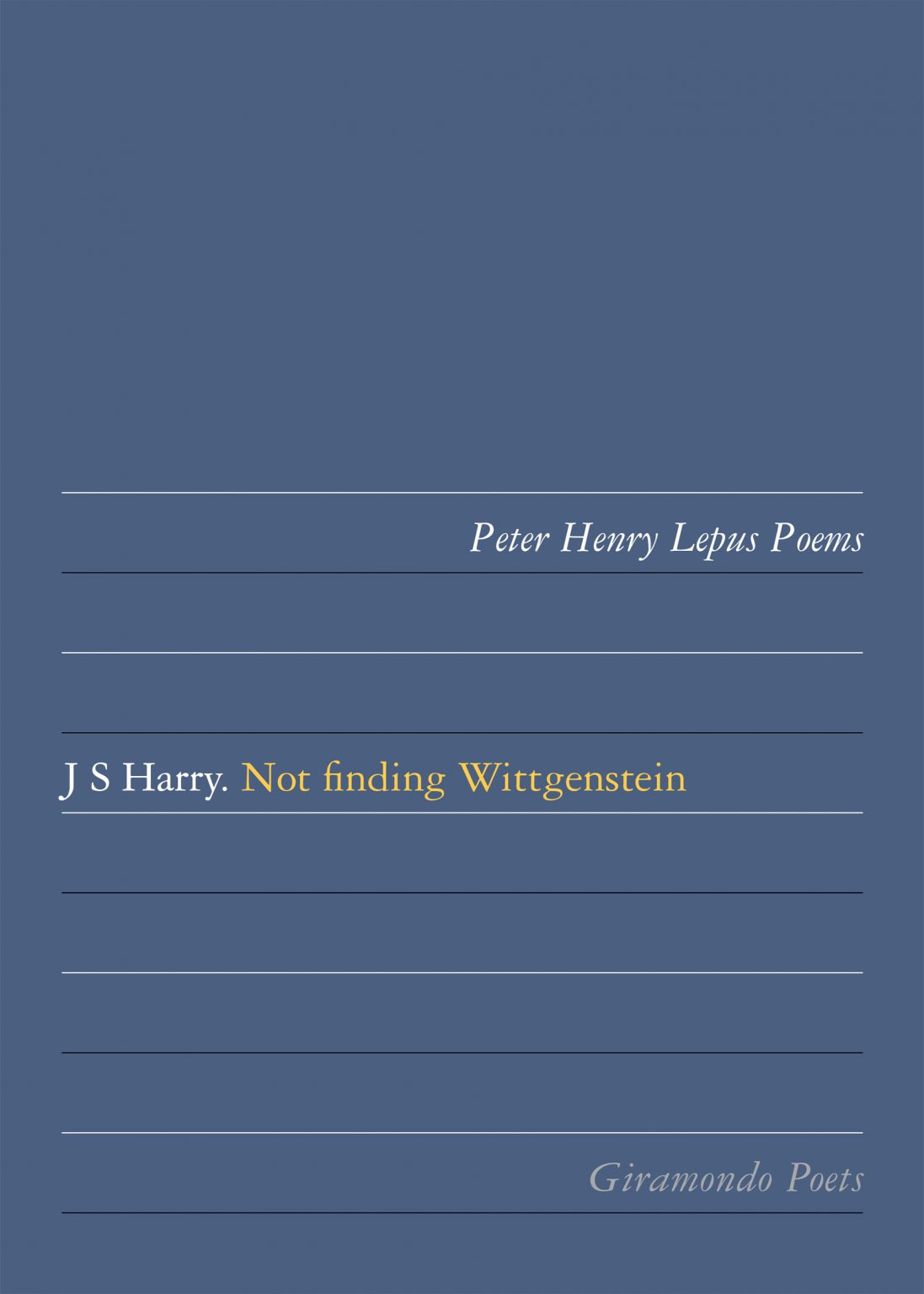
- Free Article: No
- Contents Category: Poetry
- Review Article: Yes
- Online Only: No
- Custom Highlight Text:
Satire is more than just biting animosity or moral denunciation, though in those shapes it has made its greatest contribution to world literature – from Aristophanes and Juvenal to the first Samuel Butler and Swift. The convention only works in relatively permissive societies. During the worst excesses of censorship in the Cold War, the authorities were seldom worried by satires cleverly concealed as fables or dystopian extravaganzas. Let the cognoscenti exchange winks, their rulers knew that the mob was not interested and the state hardly threatened. The censors themselves may well have enjoyed the ingenuity of their indignant critics – so Zbigniew Herbert, Miroslav Holub and Andrey Voznesensky prospered without having to defect to the West. Meanwhile, satire turned into cabaret in our part of the world.
- Book 1 Title: Not Finding Wittgenstein
- Book 1 Biblio: Giramondo, $24.95 pb, 238 pp
- Book 1 Cover Small (400 x 600):

- Book 1 Cover (800 x 1200):

But there has always been another and more elusive sort of ethical survey which is not so much philippic as moral Anabasis, the logbook of a traveller encountering marvels in foreign places uncannily reminiscent of those at home. Such intrepid voyagers as Mandeville and Gulliver showed the way, and behind them can be traced outlines of The Satyricon and Apuleius’s Golden Ass. It is somewhere in the latitudes of these works that J.S. Harry’s Not Finding Wittgenstein dwells. Harry’s book is in verse, which might seem to separate it from the preceding examples, but it can be argued that they, like modem instances such as Erewhon (1872) and Peter Carey’s The Unusual Life of Tristan Smith (1997), are composed in aphoristic prose not a long way from Harry’s free-range versification.
Harry, who has always been a quizzical writer with a pointillist technique, began ten years ago to investigate the modern world, and more particularly its horrors and hypocrisies, through the adventures of a renowned innocent, one given to reporting things clearly in any environment. This is Peter Henry Lepus (in the vernacular, Peter Rabbit), though his derivation is not credited here to Beatrix Potter. Peter is an Australian rabbit of English extraction and sternly British pragmatism, related to one, Picasso Rabbit, living in the Lake District, which environment sets a standard of lushness frequently evoked to measure the various desert and depressing landscapes that Peter encounters. Peter is a seeker after truth in the Diogenes mould: for instance, he is as impatient to know how philosophy works as he is to analyse the cruelties and misunderstandings of realpolitik. Some of the absurdities he reports with special zest are literary ones.
His first peregrinations introduce him to some of Australia’s flora and fauna. This very brown land is full of biting insects; a flock of galahs assures him ‘we are poets of the feather ... come with us to the Balmain Brolga’, but he is searching for beauty which, like all flesh, is grass. Australia’s creatures have to put up with very sparse grass. Pretty soon he is seeking the Tractatus (Wittgenstein’s first spoor) but is side-tracked by The Critique of Pure Reason. In the middle of several philosophical dilemmas, he remains aware of a shortage of carrots and lettuces. It is a condition of his pursuit of truth that he is confused by circumstances defying verbal elucidation or any special Rabbit understanding. Bertrand Russell, art historians, Japanese shrines, Walt Whitman and further deviations trap him. It is beyond the power of a reviewer who hasn’t the space of an article in Essays in Criticism or a well-tempered seminar ready to follow his illusions to conduct the reader through each of Peter’s encounters. From this point on, I shall focus only on the main developments in his search.
But Harry’s brilliant Spanish-omelette verse style must be acclaimed. One example: some high-up person once told Russell, ‘if they could get the near-moribund / necrotic-tissured body of their country working – by economic theory – / they could put the soul back in later ... literature, art, music etcetera.’ Russell informed Peter about this: ‘as a theory – in 1920 he’d had profoundest doubts.’ Harry is a superb placer of quotations; her method amounts to a kind of literary intarsia.
Australia’s ‘Rabbit-proof Fence’ is built upside-down and becomes ‘Rabbiter-proof’ instead, so that rabbits can control that pernicious species humanity to the point even of introducing a ‘Rabbiter’ form of AIDS. Peter joins the best literary circles in Balmain and Canberra, and has to learn about ‘the cold and frosties ... the means by which poetry is produced’. Some underdetermined Canberra poets and some overdetermined Sydney ones interest him for a time, but his true passion is for philosophers, especially of the English Logical Positive sort. Before starting an expedition to find them, he consults a cousin, the ‘Flowerbed Rabbit’, who returns from time to time as adviser on his further concerns
Central to Peter’s adventures is his sojourn in Iraq, in 2003. Here Harry’s narrative becomes both more fixed on real events and yet more random in its emphases. He is searching for Alfred Jules Ayer, renowned author of a hit book, Language, Truth and Logic, throughout the Tigris and Euphrates region. He also wishes to help Joseph Smith, founder of the Mormons, to find his fifteen lost wives. In Peter’s world people come and go, oblivious of where they actually are, so Ludwig Wittgenstein appears and vanishes. John Howard’s voice is heard, but Peter is on the back of a recalcitrant camel en route to the capital where the animal is terrified by the slogan ‘Thin camels get eaten in Baghdad’. When I chose this section of the poem to include in my anthology Best Australian Poems 2005, 1 praised it as able to light up a moral scene wonderfully, but read in its new entirety the Iraq sequence is more mysterious. Harry’s account of the appalling Bush–Blair–Howard war becomes a wide-screened fantasy of how human stupidity and cruelty light up the madness of everyday disorientation, a whirlpool in which actual happenings and private obsessions bob relentlessly to the surface.
But Harry is also very funny, a mistress of the wisecrack non sequitur, deeply distrustful of words as identifiers, and of philosophers and poets as purveyors of truth. Peter is writing his Rabbit History of Philosophers, and a veritable scrapbook of Harry’s own delvings is opened for the reader in the subsequent pages. One, Max Strang, an Australian journalist, becomes a leading protagonist (I confess that I write this review too far away from current Australian journalism to be able to hint at his identity): he is in love with a beautiful lady named Braid (of Braidwood) and is trying to convince a Sydney editor and publisher, Weasel Smith, to print his dispatches from Iraq. More intense than these human dramatis personae are some animal and insect friends. Peter shares his camel with a huntsman spider, Clifta Web, also writing a history (hers is of the huntsman spider species, Sydney branch) and later a bombed-out house in Baghdad with an Abyssinian cat whose ancestral mother had lived with the female philosopher Hypatia. With Max and an Iraqi named Hamid, Peter watches a hopeless attempt to bury a corpse they have been carrying to a charnel house.
In my effort to dovetail even a little of the poem’s many divagations, I may have overstressed its peculiarity. When read in toto it becomes a humane and comprehensive gathering of mankind’s desire to find connections, to realise meditation’s wish to bind up anything and everything by language alone. Peter is not Rasselas or Gulliver: he is rather the hook on which an individual imagination is hanging a picture of a seriously distorted world. That this should be executed in poetry is something of a triumph.


Comments powered by CComment